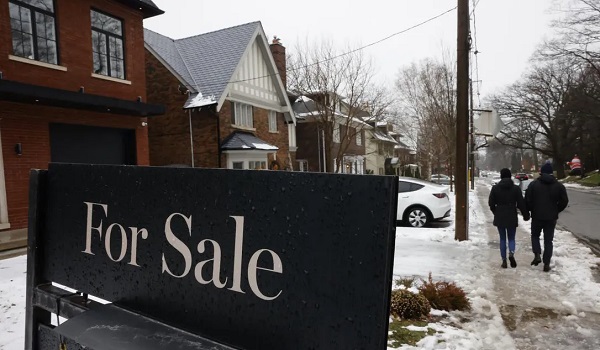Open bidding as come to stay in Ontario, will anyone use it
New real estate rules that allow sellers and buyers to enter into an open bidding process are now in effect in Ontario, but most agents say sellers likely won’t opt in.
Effective Dec. 1, the new rules are meant to provide more transparency during the bidding process, allowing sellers in Ontario to disclose submitted bid prices and offers to potential buyers, something they were previously banned from doing. The rules follow years of political promises on the topic.
But real estate agents the Star spoke to said most sellers won’t choose to opt in to the practice, resulting in minimal change for buyers. However, sellers may choose open bids when it suits them, such as a market downturn, as it could attract more buyers.
“These rule changes were necessary because the public was pushing for open trade,” said Toronto-based real estate agent Linda McLellan. “In theory the rules are good but in practice most sellers want to get the best price for their home. Having an open bidding process might not get you the best price.”
If the seller does opt in to open bidding, they can change their mind at any point during the process, she said. That means during the first round of bids, the seller can make the bids publicly available to the prospective buyers, but during the second round they can make it private, or pick and choose what to disclose, she added.
“During the first round all the bids can be transparent, but in the second round they can choose to only make the closing date offers transparent, or the terms and conditions,” McLellan said. “So they can really pick and choose and change their mind throughout the process, which makes it tricky.”
If a seller offers open bids, buyers can also choose whether they’d like to partake, she said, and if the buyer chooses to keep their bid private they’re still able to see the other public offers.
“It puts the onus on the sellers and buyers whether they’d like to be transparent during this negotiation or not,” she said, adding that the benefits of open bidding is dependent on the current market conditions. “During a market downturn, offering an open-bidding process could attract more buyers.
While the new rules allow for price offers to be made public, said Cailey Heaps, CEO of the Heaps Estrin Team, other terms such as conditions, deposits and closing dates can also be disclosed.
“Sometimes the highest price doesn’t get you the winning offer,” she said. “If one bid has the higher price but their financials aren’t in good order, there can be other terms to make other buyers more favourable to ensure the transaction closes.”
If the seller chooses to have a blind bidding process then real estate agents need to provide accurate and helpful information to buyers to give them the best chance of winning, she said. “We can say to our client, your closing date and conditions are strong but the price needs some work. But that depends on reliable and ethical agents.”
Toronto-based real estate agent Grace Chan said “sellers call the shots” with the new rules, making the shift to have better market transparency minimal. But, even if the bid is blind, buyers should go into the process with a “very clear” understanding on their highest offer.
“Prospective buyers need to work with their agents and mortgage brokers to ensure they’ve looked at comparables and that they can afford a home in a given price range,” she said. “You might not know what other people are offering, but you know what you’re comfortable offering.”
Some critics have said the rules don’t go far enough to create a fair home purchase negotiation, but Heaps said a seller has the right to dictate how they choose to sell what is likely to be their largest financial asset. “It’s their biggest asset and they should have a say in how that asset is handled.”
Better regulation in holding agents accountable is more pressing, experts say, as some act in bad faith, such as providing misleading information on bid prices to receive a high commission. Flagging bad actors to the regulatory body, Real Estate Council of Ontario, is one way to ensure problematic agents are dealt with and agents are obligated to inform consumers on how to file complaints.
“We don’t want to dictate what people can do with their own property,” said McLellan, “so allowing open trade gives sellers more options when selling their home.”
This article was reported by The Star
















